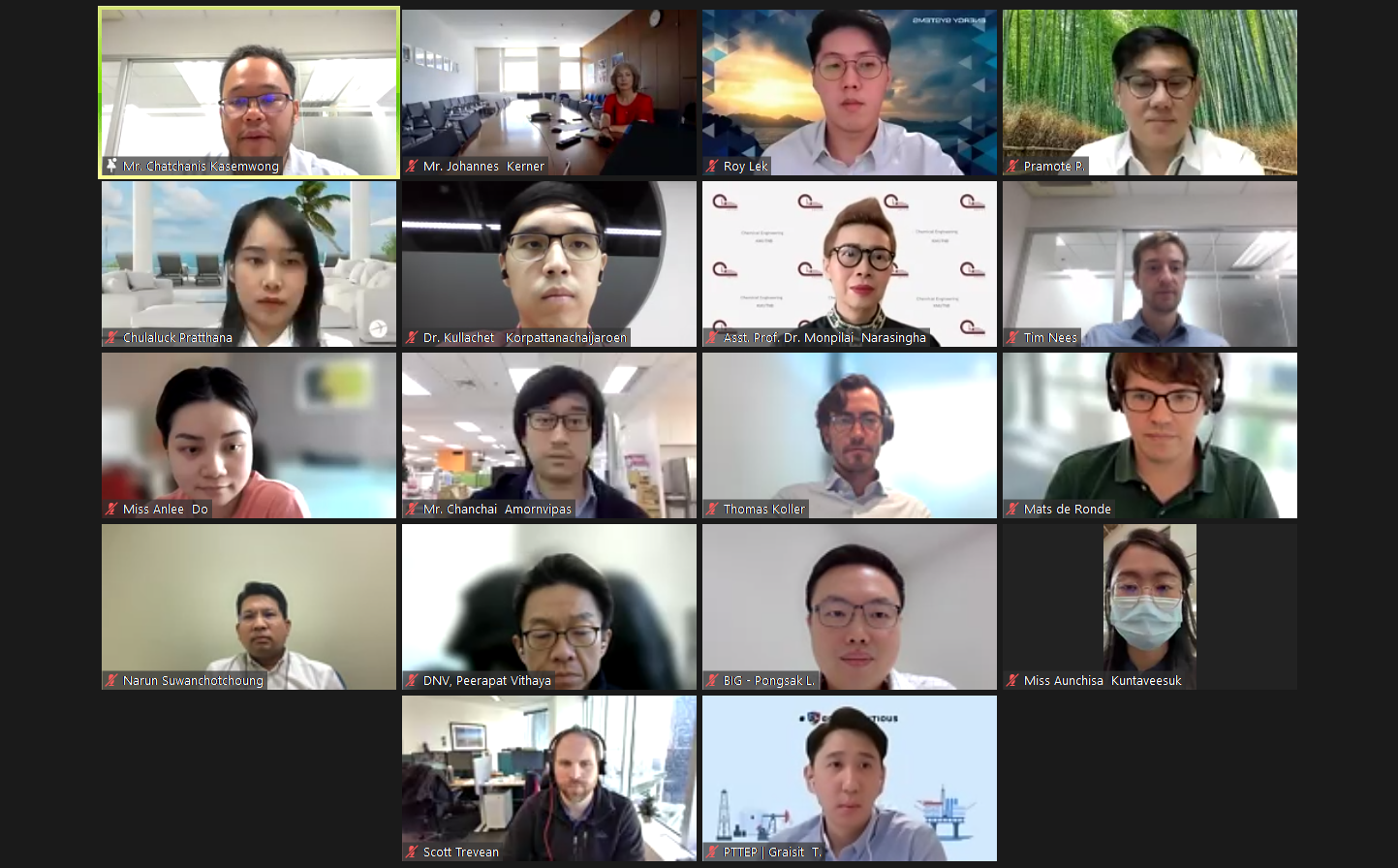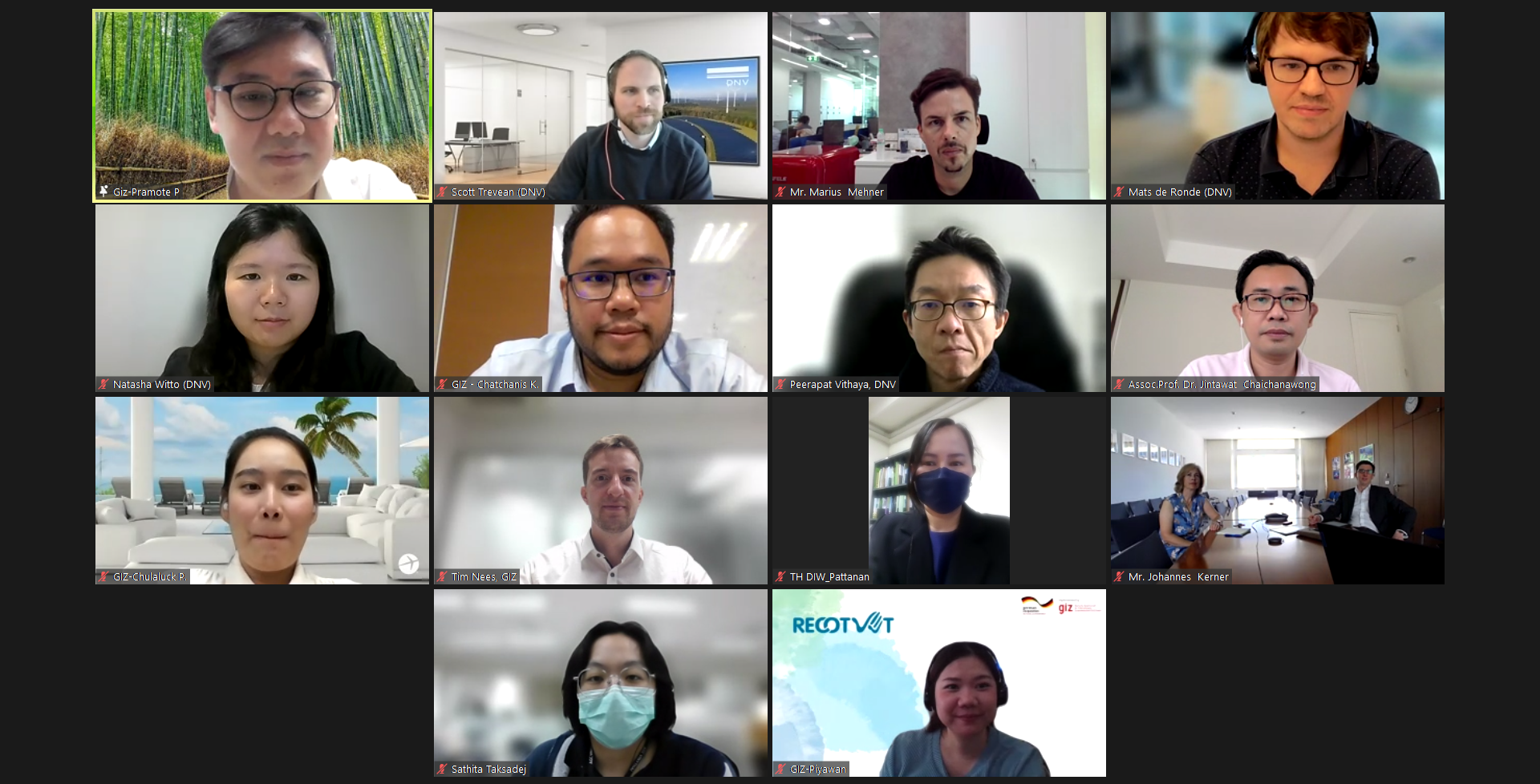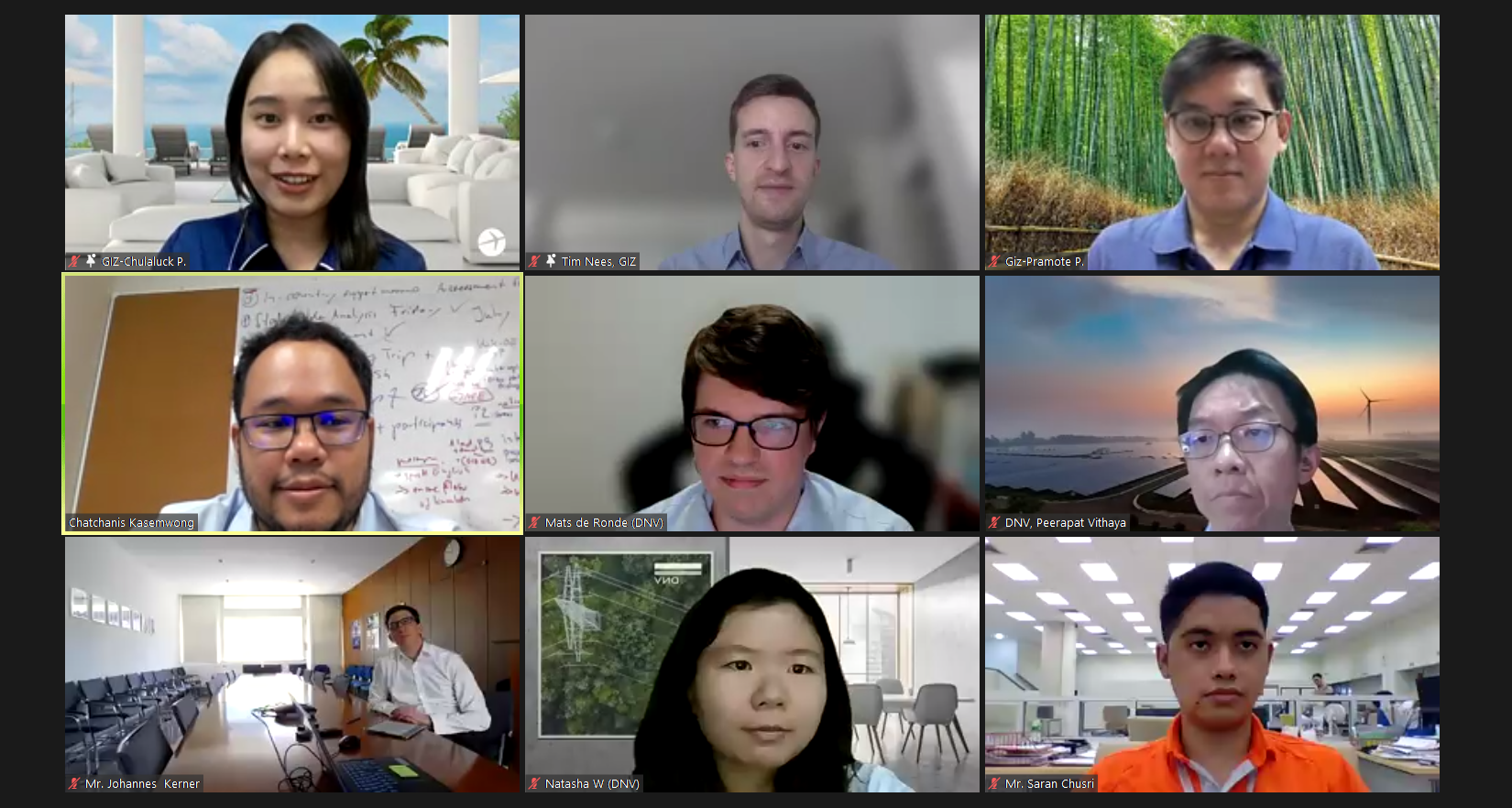Study dissemination workshop to boost Thailand’s Green Hydrogen market

As part of its effort to boost Thailand’s Green Hydrogen (GH2) market, the “International Hydrogen Ramp-Up” or H2Uppp programme organised a series of online dissemination workshops to share key findings from a study on hydrogen in Thailand, providing participants with insights into the Thai hydrogen market, and identifying opportunities and challenges in the adoption of hydrogen as an alternative power source.
The dissemination workshops held on 21, 27, and 30 June targeted the transport, industrial, and power sectors, respectively, the three major greenhouse gas emitters needing to transition towards clean energy in line with Thailand’s targets to reach carbon neutrality in 2050 and net-zero emissions in 2065. Hydrogen is believed to have a potential role to play in the country’s decarbonisation process.
The online workshops were attended by decisionmakers from the public sector, including the Ministry of Energy and the Electricity Generating Authority of Thailand (EGAT), and representatives from the private sector, such as PTT group and SIEMENS. Participants had the opportunity to learn about the current situation surrounding hydrogen in Thailand, its market potential, and challenges involved in the adoption of GH2 in the three sectors, and engaged in discussions on the findings of the study series undertaken by H2Uppp in collaboration with DNV.
The study series on the market development for Green Hydrogen and Power-to-X in Thailand will be published by the H2Uppp programme in October this year.
Financed by the German Federal Ministry for Economic Affairs and Climate Action (BMWK), the H2Uppp programme is being implemented in Thailand by the Deutsche Gesellschaft für Internationale Zusammenarbeit (GIZ) GmbH in partnership with the German-Thai Chamber of Commerce (GTCC). H2Uppp aims to support the policy and market development for green H2 and Power-to-X through studies and training, the identification and initiation of public-private partnerships (PPP) and projects, and the promotion and dissemination of knowledge through the identification and connection of local and international H2 specialists, in particular, vis-à-vis the German private sector.


